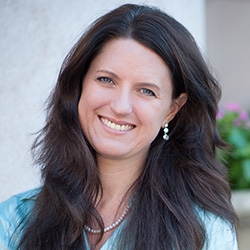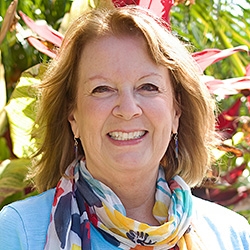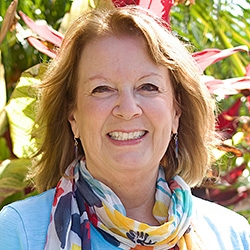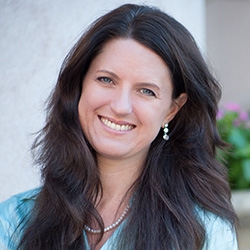
Search Results: harm
-
When bullying occurs, if we do our own healing, our brains can become more sharp and present and willing to take action to connect and to begin to shift and mitigate the harm that trauma does in our world. We can reduce trauma inflicted upon others when we recognize the patterns of abuse and bullying, hold zero tolerance for it, bring in support for both sides of the conflict, and take action to effect systemic change. Read on for more.
-
For each reactive pattern there is a perceived threat to a tender need. Knowing these tender needs helps us figure out how to interrupt these patterns and creating new ways of perceiving and relating to life. In addition to knowing the need, knowing the healing response and the primary reactive behavior helps with transformation.
-
Even leaders we admire may exhibit behaviors that could be labeled as abusive, at least slightly. This includes not treating followers as equals, using charm, and hiding or twisting truth. In such scenarios a key reason for this is loneliness. If we're using our work and position primarily to gain for appreciation, acknowledgement, and acceptance then we need to examine our own loneliness. We need feedback to keep such conduct in check.
-
Empathy alone can be unreliable in guiding compassionate action. As seen in historical events, military training, personal anecdotes, and scientific experiments, empathy alone may not prevent people from harming others. A sense of duty or obedience, often instilled through fear of punishment and shame, might inhibit empathic action. The antidote may be to fostering empathy without resorting to control, shame, or punishment.
-
Sylvia Haskvitz uses 20+ years of experience to introduce the core concepts of Nonviolent Communication, leaving you grounded in the basics and ready to make transformative improvements to the quality of your communication.
-
Join LoraKim Joyner to investigate how merging science, the social and emotional intelligence of humans, animals and other species and Nonviolent Communication can bring a greater sense of belonging and wholeness to your life, and care and justice to the lives of others.
-

How do you know when you’re projecting disowned parts or replaying old relationship dynamics? It’s hard to know for sure, but if you find yourself upset or shutting down and unable to have a dialogue in which you can speak clearly about your feelings and needs and empathize with the other’s feelings and needs, there is likely a projection. The stronger your reaction, the more likely you are projecting.
-
Are we really safer when we put those who harm others behind bars and forget about them? Explore turning our prisons into houses of healing and creating connections that lead to greater safety for our communities.
-
In pandemic many are asked to stay home. If we are experiencing violence at home we're also most at risk of harm or death if we leave. There are also less visible pieces at work. In this situation, acknowledging our pain, needs and experience can lighten the internal load to meet what is real, and claim our truth. We can do the same for our kids. This can open more pathways forward, and provide strength to leave when its more viable.
-
Who are you not use to caring about? Is it those you classify as "other"? Those you disagree with? The lower class? People in power? Those who inflict harm? Yourself? To include everyone's needs fully, not instead of your needs, can transform the either/or paradigm. It can also help us to go beyond so-called "codependency". And it can support us all to live more sustainably on this planet.
-
Hearing actions that lead to living beings' harm, you may notice that some people believe that the needs of some must come at the cost of others. This view arises from fear and an economic system meant to promote and feed off false scarcity. When struggling with this, grieve, receive support, and notice your feelings show you certain values matter to you. From this sense of purpose you can find where you can be of most service.
-
The purpose of setting boundaries is to prevent harm to yourself and others. In this video, Yvette Erasmus describes how and why exquisite self-care requires exquisite boundaries.
-
One thing that makes empathic understanding difficult yet valuable is that it can be humbling. If I really open myself to hearing and understanding, while trusting my inner strength of self-knowing, I may be changed by what I hear. My core beliefs or understanding might change and grow. This openness could be key to transforming the energy of conflict into new possibilities for greater connection, creativity, and well-being.
-
How we treat ourselves when we fall short of our own ideals, desires and hopes can profoundly affect the quality of our lives. Learn how to identify your triggers and reactions, to mourn falling short, and to practice self-connection and self-empathy.
-
- Move beyond anger, blame and judgment…
- Make sense of the baffling or offensive people in your life…
- Deepen your compassion for yourself and others… and
- Transform your old thought and speaking patterns into new ones that inspire harmony and fun!
-
Trainer Tip: When looking to create healthier habits for your body, consider what needs those habits support -- such as integrity, nurturing, or love. Then consider the ways your body supports your life, and if you want to live in harmony with your body. If you make loving your body as natural as brushing your teeth or making your bed in the morning, you can bring deeper peace into your life.
-
Many believe it's only a true NVC request when we can ask for what we need without urgency or insistence. But what if we're the target of oppression and hate in a world with systemic inequality? Is it still nonviolence to abdicate power by allowing the person enacting harm to be the one to decide whether harm continues? The intensity of the need, degree of harm, and how chronically unmet the need is, are factors to guide us for when to apply force and demand within NVC. We can be attached to outcome, without being attached to strategy.
-
The purpose of boundaries is to prevent harm to yourself and others. You decide what you are available for and what you are not. Boundaries are a clear expression of limits that keep your heart open no matter what.
-
- Uncover the expansive possibilities of Nonviolent Communication in growing compassion for a more empathic world
- Engage with 17 global trainers on 17+ unique topics
- Connect with an international audience from novices to experts
- Immerse yourself in a festival of learning, fun, and community
-
Find renewed aliveness and connection in your daily life through NVC and Buddhist Mindfulness practices.
In this 6 session course with Roberta Wall and Barbara Bash, you will explore how NVC helps bring to life Buddhist principles and values in relationship to yourself and others. And, you will discover how Buddhist practice deepens and supports your capacity to learn and live NVC in your daily life.



















